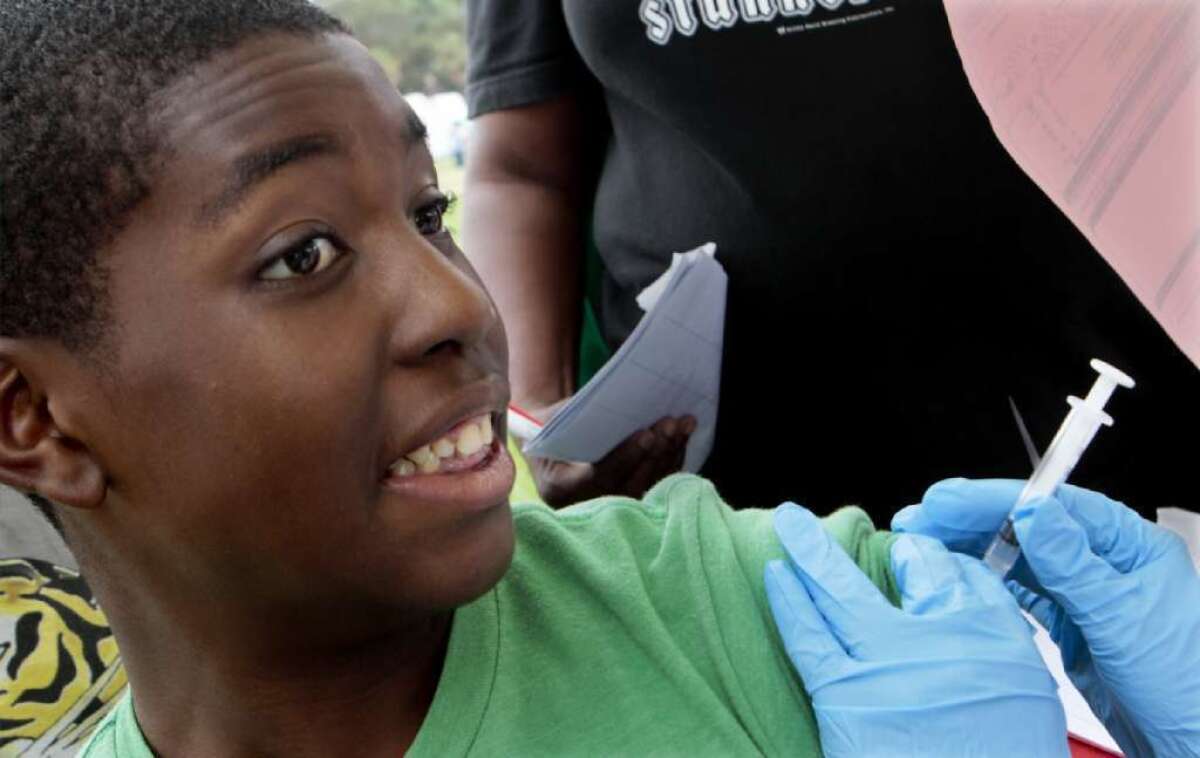Whooping cough cases rise sharply in Long Beach

- Share via
Long Beach health officials are warning residents of a sharp increase in whooping cough cases in the city.
Health officials say 42 cases have been reported since January. Although officials did not immediately have a breakdown for the cases reported in the same period last year, they said 15 cases were reported for all of 2013. Four cases were reported in 2012.
This year, most of the infected have been school-age children, officials said, adding that no deaths have been reported.
Known as pertussis, whooping cough is a contagious disease spread by the coughing of an infected person.
“A recent rise in pertussis in the city of Long Beach serves as a reminder that all age groups need to be properly immunized against this highly contagious disease,” said Dr. Mitchell Kushner, health officer for the Long Beach Department of Health and Human Services.
Symptoms start with a cough, low-grade fever and runny nose that will last up to two weeks, followed by rapid coughing fits that can sometimes last months.
Typical symptoms in young infants may be more variable and severe, including intense coughing accompanied by a whooping sound and vomiting after coughing.
Officials say complications, such as pneumonia and seizures, and in rare cases, death, can occur.
Although most children receive five doses of pertussis vaccine before entering kindergarten, immunization wears off over time and booster shots are needed throughout life.
Health officials are encouraging residents to contact their healthcare providers and immunize themselves and their families against the disease.
Those who do not have a regular health provider or health insurance can dial 211 or the health department’s immunization program at (562) 570-4516.
Twitter: @latvives
More to Read
Sign up for Essential California
The most important California stories and recommendations in your inbox every morning.
You may occasionally receive promotional content from the Los Angeles Times.











